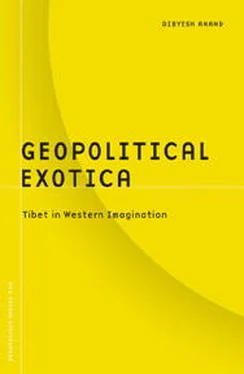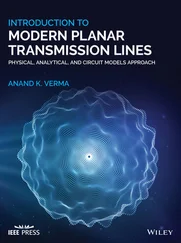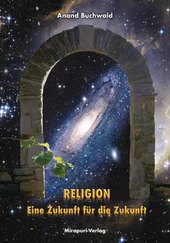At one time or another, European and American discourse has inscribed women, the working class, Eastern Europeans, Jews, blacks, criminals, coloreds, mulattos, Africans, drug addicts, Arabs, the insane, Asians, the Orient, the Third World, terrorists, and others through tropes that have written their identity as inferior, often in terms of their being a mob or horde (sometimes passive and sometimes threatening) that is without culture, devoid of morals, infected with disease, lacking in industry, incapable of achievement, prone to be unruly, inspired by emotion, given to passion, indebted to tradition, or… whatever "we" are not. (1998b, 89)
In Weldes (1999) as well as Weldes et al. (1999), representation is analyzed as a central concept of international relations and foreign policy. As in Campbell, it is the foreign policy regime sustained by particular representational practices and the identity of the repre-senter (the United States) that is under investigation. Doty (1993, 1996a, 1996b) provides effective analysis of representation as foreign political practice. Similarly, Neumann studies the "use of 'the East' as the other" (1999; emphasis added) as a general practice in the identity formation of Europe; Klein examines NATO "as a set of [representational] practice by which the West has constituted itself as a political and cultural identity" (1990, 313); and Dalby (1988) analyzes how the Soviet Union was constructed as a dangerous Other in order to produce an ideological rationale for the U.S. national security state.
In all these studies of Western representation of the Other, the focus is on either its rationalizing role in some foreign policy regime or on its productive effect on dominant identity discourses within the West. These works have not dealt with the poetics and politics of Western representations of the non-West from the vantage point of the latter. The focus has remained largely on a critique of Western practices, not on its productive and restrictive impact on the non-West. This is at best an incomplete step in the right direction. While recognizing the significance of representation of the Other for the representer, we must identify and analyze the impact on the identity of the represented. Chapters 4-6 focus on the productive dimension of representations vis-a-vis the represented through the empirical study of the identity of Tibet and Tibetans. My emphasis is on the ways in which particular encounters between the West and the non-West have shaped the latter. Representations support not only particular politics of the representer toward the represented but, significantly, they construct the very identities of the actors involved, especially the Other. Representations are productively linked with identity discourses of all kinds. The conventional idea that representation draws upon a pregiven identity is turned on its head, for it is identity that is fashioned out of particularized representations. In the case of Exotica Tibet, then, representational discourses are not reflective of, but actually productive of, Tibetan identity. Within critical IR, the paucity of serious consideration of the "how," "why," and "what impact" questions of Western representations of/on non-Western communities shows that the task of provincializing the West has only just begun.
Theorizing Representation
Constructionist theories (Hall 1997b, 15-74) are best suited for a contextualized understanding of social and political concepts like representation and identity. They do not argue that the material world does not exist but that it acquires meaning only through the mediation of language and discursive systems. Though such a discursive approach characterizes the work of many scholars, no one has been more prominent than Foucault (1970, 1972, 1980, 1984, 1986) in shaping it. Foucault is concerned with the production of knowledge and meaning not through language but through discourse. Discursive practices have their own inclusionary and exclusionary aspects.
Discursive practices are characterised by the delimitation of a field of objects, the definition of a legitimate perspective for the agent of knowledge, and the fixing of norms for the elaboration of concepts and theories. Thus, each discursive practice implies a play of prescriptions that designate its exclusions and choices. (Foucault 1986, 199)
Foucault's reformulation of discourse also calls for recognition of the explicit linkage between knowledge, truth, and power. Identification of the knowledge-power (pouvoir/savoir) nexus reveals the linkage of truth claims with systems of power:
Truth isn't outside power, or lacking of power: contrary to a myth whose history and functions would repay further study, truth isn't the reward of free spirits, the child of protracted solitude, nor the privilege of those who have succeeded in liberating themselves. Truth is a thing of the world: it is produced only by virtue of multiple forms of constraint. (Foucault 1980, 291)
The recognition of the constructed character of truth facilitates a critical political positioning. Nothing is sacrosanct. However, this does not undermine the impact of truth claims on the lives of people.
All knowledge, once applied in the "real" world, has real effects and in that sense becomes true. [21]This Foucauldian identification and exploration of the link between power, knowledge, and truth is radical in its implication. It shifts the terrain of inquiry from the question "What is truth?" to the question "How do discursive practices constitute truth claims?" In terms of representation, we may see the implication as a shift in the focus from some core reality beneath/behind representations to the modalities of their functioning. The question is no longer whether a representation is true or false but what discursive practices operate to render it true or false. It is not about how representations reflect some subjects but, more crucially, how subjectivity itself is constructed within discursive practices, how representational regimes are productive of subjectivity. Discourses then are "practices which form the objects of which they speak" (Foucault 1972, 49). Adopting this approach to Tibetan identity, the pertinent question shifts from "How far do representations (both Western and self-) of Tibetans reflect their identity?" to "How do representational regimes affect the discursive production of Tibetanness?" This helps us look at Tibetanness as a politicized identification process, instead of some pregiven, es-sentialized, fixed object.
It is important for my analysis to underline a two-pronged approach I will be taking. First, I will explore the poetics of representation-how is Tibet as the Other represented, how is Tibet produced within representations about it. This entails examining how Tibet is imagined within Western culture by looking at literature (both fiction and nonfiction), films, travel accounts, and so on. Second, I will analyze the politics of representation-effects and consequences of representation on the identity of Tibet and Tibetans. The latter places expositions on Tibet in the context of power, imperialism, neocolonialism, (trans)nationalism, and Orientalism. Chapters 2 and 3 will discuss the poetics while chapters 4, 5, and 6 will deal with the politics of Western representations of Tibet.
Within the context of European imperialism, the issue of the representation of natives was often considered as belonging to the realm of scientific objective ethnography, journalistic commentaries, or fiction (Spurr 1993). A clear boundary was said to exist between fiction and nonfiction writing. It was presumed that, unlike fiction, nonfiction writing such as literary and popular journalism, exploration and travel writings, memoirs of colonial officials, and so on are unmediated by the consciously aesthetic requirements of imaginative literature. Emphasis was on the recording of observed facts. However, as argued by scholars from fields as diverse as postcolonial theory (Bhabha 1983; McClintock 1995; Said 1978; Shohat 1995; Spurr 1993), anthropology (Clifford 1988; Clifford and Marcus 1986; Fabian 1990; Van Maanen 1995), and international relations (Campbell 1998b; Doty 1996b; Weldes et al. 1999), such views are no longer tenable. Starting with Said (1978) the enterprise of postcolonial theory has unpacked the notion of neutral academic expertise and highlighted how Western knowledge and representations of the non -Western world are neither innocent nor based on some preexisting "reality" but implicated in the West's will to power and its imperial adventures. The image of a scientific, apolitical, disinterested, knowledge-seeking "gentleman" braving all odds to study non-Western cultures has been revealed as hollow.
Читать дальше












